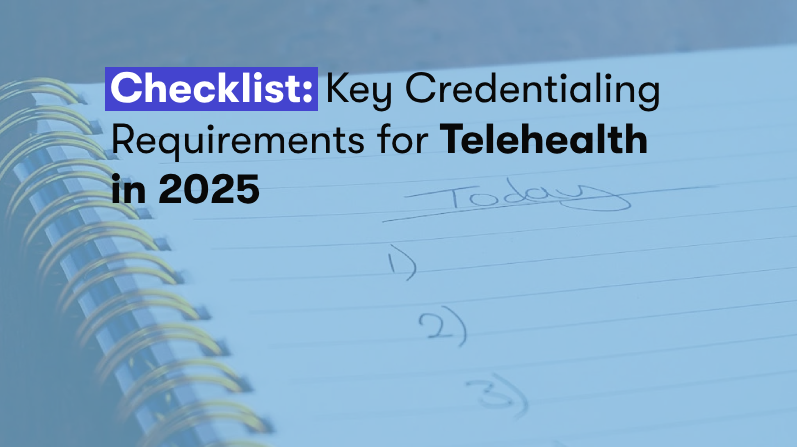
Building a flexible workforce is the best way to prepare for future epidemics

If the past few months have taught us anything, it’s that we were woefully underprepared for the sudden - and massive - increase in demand for health and social care services brought about by the Covid-19 pandemic.
The global response to Covid-19 was not only disparate, it was also too slow. Capabilities in terms of contact tracing, health communications, containment and critical care capacity varied considerably between - and within - nations, whilst approaches to dealing with the crisis also differed markedly across the board (think: herd immunity vs strict lockdown measures). Thrown into the mix were competing political agendas, economic constraints and inconsistent rates of contagion throughout the world. All of which made for a confused global response which largely failed to contain the spread of the virus.
The ‘Hidden Impact’ of Covid-19
With many NHS staff already exhausted from months of tackling the virus on the front-line, our health services now face the daunting task of addressing serious backlogs in elective procedures, outpatient departments and all other non-urgent treatments including cancer screening.
The BMA has released a report on the ‘Hidden Impact’ of Covid-19 on UK health services, which details the drastic reductions made to NHS care since March this year and the effects that this is likely to have on healthcare services in the months and years to come. BMA council chair Chaand Nagpaul has talked about the ‘brutal impact’ of Covid-19 on routine treatments, citing an alarming tenfold rise in waiting lists for cancer treatment compared to the same period last year.
President of the Royal College of Surgeons of England, Professor Neil Mortensen said: “We have been concerned since the start of this pandemic that suspending elective surgery for a period of months placed a time bomb under what was already a crisis in NHS waiting times. That time bomb has now detonated, with the numbers of those waiting more than a year for treatment spiralling out of control to the worst levels since September 2009.”
During the pandemic, there has also been a significant reduction in the number of people seeking hospital treatment; a study carried out by the University of Oxford NHS found there were around 8,000 fewer admissions to UK hospitals for acute coronary syndromes between January and May of this year.
We know that Covid-19 has put existing resources under extreme pressure, disrupting services and resulting in crippling backlogs throughout the health system. Although work towards a vaccine is underway, we have no guarantees when this might be ready and in the meantime, there is a genuine concern that we could experience a devastating ‘second-wave’ of the virus.
What can be done?
Healthcare providers are now faced with a pressing need to augment staffing levels, where possible increasing treatment capacity beyond pre-Covid levels. So how can this be achieved?
Recruitment processes must be reliable, robust and most importantly, rapidly scalable. Providers of health and social care services need to be ready and able to hire, onboard and train new staff so that they can provide high quality acute care, in the event of a second wave.
Furthermore, wherever possible existing staff members, especially those whose work poses a high risk of exposure to the virus, must be kept safe. Healthcare providers must be able to:
- accommodate remote working
- offer remote sign-up and verification of healthcare workers
- minimise the risk for returning retirees / flexible workers by prioritising their safety.
How Credentially can help
At Credentially, we can help you to build a flexible workforce, which is one of the best ways to prepare a second wave of Covid-19, or for future epidemics.
Since March, we have seen a 43% increase in the number of clinicians hired for remote working, and there are no signs of this trend abating. We work closely with ambulance trusts, urgent care centres, hospitals and online providers to ensure that they are able to meet their staffing requirements in a rapidly changing landscape. Credentially’s software platform has been used for the emergency onboarding of over 3,000 clinicians - in just over three weeks - for the life-saving Covid Clinical Assessment Service.
Credentially’s unique system - designed by healthcare professionals - facilitates the hiring, onboarding and compliance of clinical and social care staff, entirely remotely.
We’re so confident in our software’s ability to help you build a flexible workforce to meet the acute demands of a crisis situation like Covid-19, we’re offering all healthcare providers the opportunity to try it out, completely risk free. We guarantee that our platform offers improved efficiency, more robust safety features and a simpler interface than other solutions. If you don’t agree, no problem. We’ll give you your money back.
Book a demo to find out more about how we’ve already helped many healthcare providers transform their hiring and onboarding processes. Let us help you prepare for whatever the future brings.
Find out how Urgent Care provider HUC has drastically reduced time to hire down to as little as three days by automating credentialing and onboarding processes.
3 Reasons Providers Fail CQC Inspections
Are you CQC ready?




















Take Action
Popular Posts
































